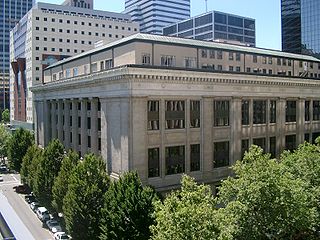Ballot Measure 47 was an initiative in the U.S. state of Oregon that passed in 1996, affecting the assessment of property taxes and instituting a double majority provision for tax legislation. Measure 50 was a revised version of the law, which also passed, after being referred to the voters by the 1997 state legislature.

The Oregon Historical Society (OHS) is an organization that encourages and promotes the study and understanding of the history of the Oregon Country, within the broader context of U.S. history. Incorporated in 1898, the Society collects, preserves, and makes available materials of historical character and interest, and collaborates with other groups and individuals with similar aims. The society operates the Oregon History Center that includes the Oregon Historical Society Museum in downtown Portland.

Bill Sizemore is an American political activist and writer in Happy Valley, Oregon, United States. Sizemore has never held elected office, but has nonetheless been a major political figure in Oregon since the 1990s. He is considered one of the main proponents of the Oregon tax revolt, a movement that seeks to reduce taxes in the state. Oregon Taxpayers United, a political action committee he founded in 1993, has advanced numerous ballot initiatives limiting taxation, and has opposed spending initiatives. Sizemore made an unsuccessful run for Governor of Oregon in 1998. He also announced his intention to run for governor in 2010, but was indicted by the state on charges of tax evasion. The charges were later amended to failure to file tax returns.
Oregon Ballot Measure 37 is a controversial land-use ballot initiative that passed in the U.S. state of Oregon in 2004 and is now codified as Oregon Revised Statutes (ORS) 195.305. Measure 37 has figured prominently in debates about the rights of property owners versus the public's right to enforce environmental and other land use regulations. Voters passed Measure 49 in 2007, substantially reducing the impact of Measure 37.
Randall Edwards is an American politician who most recently served as the state treasurer of the state of Oregon. A Democrat, Edwards was elected as treasurer in 2000, and reelected in 2004, after serving two terms in the Oregon Legislative Assembly. He served as a manager and senior advisor at the state treasury from 1992–1996, and was an International Trade Analyst for the U.S. Commerce Department.

The Regional Arts & Culture Council (RACC) is an agency that oversees arts activity throughout the Portland metropolitan area in Oregon, United States. It was established as an independent 501(c)(3) nonprofit organization in 1995, replacing a bureau that had been shared by the City of Portland and Multnomah County – the Metropolitan Arts Commission. Today, RACC serves the tri-county region of Multnomah, Clackamas, and Washington counties.
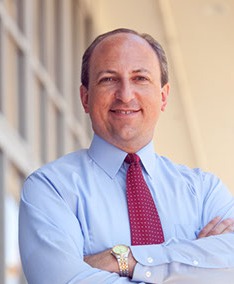
Dave Hunt is an American politician in the state of Oregon. A Democrat, he was the Oregon House Speaker and served as State Representative for District 40 of the Oregon House of Representatives representing Clackamas County from 2003 to 2013. He was elected House Majority Leader for the 2007–2009 session, succeeding Minority Leader Jeff Merkley, who was chosen as Speaker. Hunt served as Speaker during the 2009–2011 session, again succeeding Merkley, who was elected to serve in the United States Senate. After his service in the House, Hunt served as President & CEO of the Pacific Northwest Defense Coalition (PNDC) for five years. He currently serves as Senior Vice President for Strategies 360 and as an elected member of the Clackamas Community College Board.
The Oregon tax rebate, commonly referred to as the kicker, is a rebate calculated for both individual and corporate taxpayers in the U.S. state of Oregon when a revenue surplus exists. The Oregon Constitution mandates that the rebate be issued when the calculated revenue for a given biennium exceeds the forecast revenue by at least two percent. The law was first passed by ballot measure in 1980, and was entered into the Oregon Constitution with the passage of Ballot Measure 86 in 2000.

The 75th Oregon Legislative Assembly convened beginning on January 12, 2009, for its biennial regular session. All of the 60 seats in the House of Representatives and half of the 30 seats in the State Senate were up for election in 2008; the general election for those seats took place on November 4.
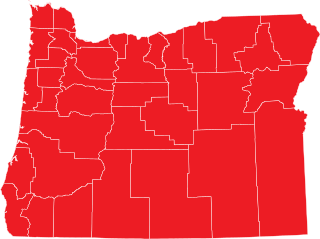
Oregon Ballot Measure 59 was an initiated state statute ballot measure sponsored by Bill Sizemore that appeared on the November 4, 2008 general election ballot in Oregon, United States. If it had passed, Oregon would have join Alabama, Iowa, and Louisiana as the only states to allow federal income taxes to be fully deducted on state income tax returns.
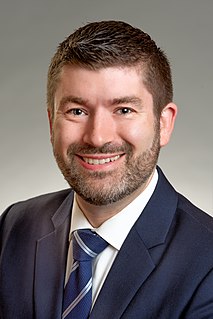
Jules Lancaster Kopel Bailey is an American politician and economist in Portland, Oregon. He served on the County Commission for Multnomah County, Oregon from June 2014 to December 2016. He previously served in the Oregon House of Representatives from 2009 to 2014, representing inner Southeast and Northeast Portland. In January 2017, he began serving as the chief stewardship officer for the Oregon Beverage Recycling Cooperative.

Oregon Ballot Measure 57 (2008) or Senate Bill (SB) 1087 was a legislatively referred state statute that increased term of imprisonment for persons convicted of specified drug and property crimes under certain circumstances. The measure enacted law which prohibits courts from imposing less than a presumptive sentence for persons convicted of specified drug and property crimes under certain circumstances, and requires the Department of Corrections to provide treatment to certain offenders and to administer grant program to provide supplemental funding to local governments for certain purposes.
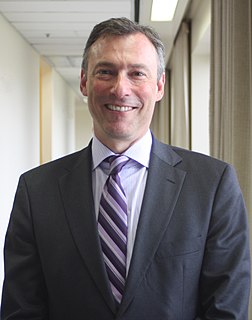
Jeffrey Scott Cogen is a businessman, lawyer, and former politician in the U.S. state of Oregon. Since 2016, he has been Executive Director of Impact NW, a social service and anti-poverty organization headquartered in Portland, Oregon. He served as chairman of the Multnomah County Board of Commissioners from 2010 to 2013. Multnomah County is Oregon's most populous county, with approximately 742,000 residents. The cities of Portland, Fairview, Gresham, Maywood Park, Troutdale and Wood Village are all located within Multnomah County.
Deborah Kafoury is a politician in the U.S. state of Oregon.
Ann Lininger is a judge on the circuit court in Clackamas County in the U.S. state of Oregon. Prior to being appointed as judge, she served as a Democratic state representative representing District 38, which includes most of Lake Oswego and portions of southwestern Portland.
Roger Edward Martin is an American businessman, state legislator, and lobbyist from Oregon. He was an electric equipment sales executive with Martin Electric and served six terms in the Oregon House of Representatives. In 1978, Martin ran for governor of Oregon, but lost to Victor Atiyeh in the Republican primary. Following the 1978 election, Martin became a lobbyist at the Oregon State Capitol.

Delta Dome was a proposed indoor sports venue in Portland, Oregon.The plans were for a 46,000 seat dome with a plexi-glass skylight and a 17,000 vehicle parking lot. Inspiration came from a similar design in Houston, Texas called the Harris County Domed Stadium which was at that time being built.

California state elections in 2018 were held on Tuesday, November 6, 2018, with the primary elections being held on June 5, 2018. Voters elected one member to the United States Senate, 53 members to the United States House of Representatives, all eight state constitutional offices, all four members to the Board of Equalization, 20 members to the California State Senate, and all 80 members to the California State Assembly, among other elected offices.



